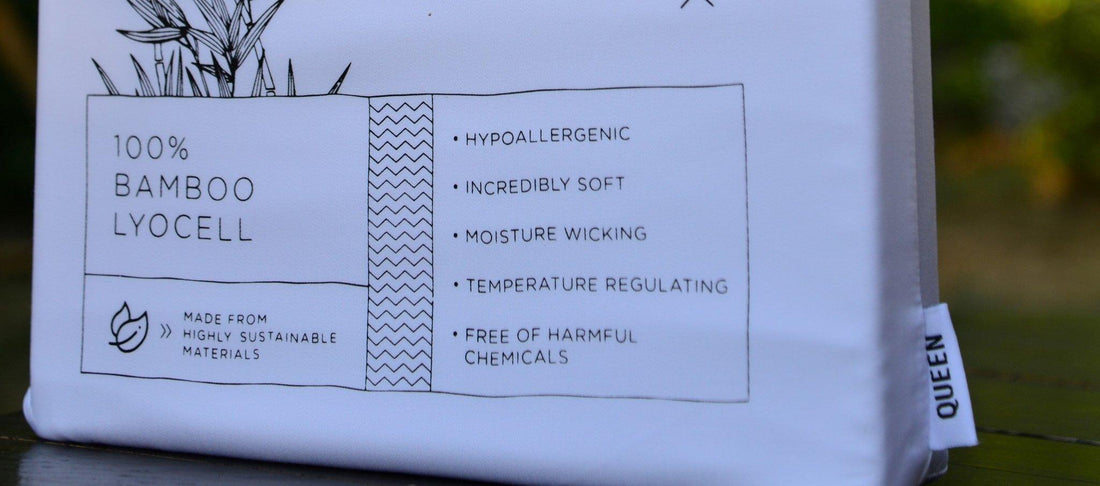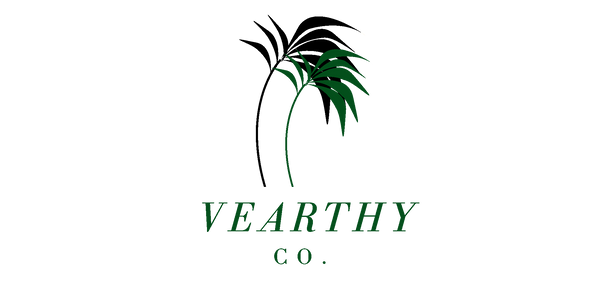
What is Bamboo Lyocell? TLDR
Share
Bamboo Lyocell: The Sustainable Wonder Fabric Revolutionizing the Textile Industry
Bamboo lyocell, a revolutionary fabric derived from the bamboo plant, has gained significant attention in recent years due to its sustainable nature and impressive qualities. With its eco-friendly production process and exceptional properties, bamboo lyocell has become a popular choice for environmentally conscious consumers seeking comfortable, durable, and versatile clothing options. In this article, we will explore what bamboo lyocell is, how it is made, and delve into its numerous benefits. Let's dive in!
TLDR: Bamboo Lyocell is the best fabric that you can invest in to have against your skin.
What is Bamboo Lyocell?
Bamboo lyocell is a fabric made from the cellulose fibers of the bamboo plant. It is a type of rayon, produced through a closed-loop process that ensures minimal environmental impact. The process involves dissolving bamboo pulp in a non-toxic solvent and then extruding the solution through fine holes to form fibers, which are later spun into yarn and woven into fabric. This process distinguishes bamboo lyocell from other bamboo-based fabrics, such as bamboo viscose, which involves a chemically intensive production method.
How is Bamboo Lyocell Made?
The production of bamboo lyocell involves several stages, starting with the harvesting and processing of bamboo. Mature bamboo stalks are sustainably sourced from certified plantations, ensuring responsible and renewable cultivation. Once harvested, the bamboo is broken down into pulp through a mechanical or chemical process, with the latter being more common due to its efficiency.
The resulting bamboo pulp is then immersed in a closed-loop system, where a solvent called N-Methylmorpholine N-oxide (NMMO) is added. This solvent breaks down the bamboo pulp, allowing the cellulose to dissolve and form a viscous solution. The solution is then forced through spinnerets, creating fine threads that solidify into bamboo lyocell fibers as they come into contact with air. These fibers are collected, spun into yarn, and woven into fabric using traditional textile manufacturing techniques.
Benefits of Bamboo Lyocell:
-
Eco-Friendly Production: Bamboo lyocell is produced using a closed-loop process, which means that the solvent is continually recycled, minimizing waste and reducing environmental impact. Additionally, bamboo is a highly renewable resource, known for its rapid growth and ability to thrive without the need for pesticides or fertilizers.
-
Luxuriously Soft and Breathable: Bamboo lyocell fabric offers a luxurious feel against the skin, resembling the softness of silk or cashmere. Its natural breathability allows for excellent moisture-wicking properties, keeping you cool and comfortable throughout the day.
-
Hypoallergenic and Antimicrobial: Bamboo lyocell is naturally hypoallergenic and suitable for those with sensitive skin. The fabric's antimicrobial properties help inhibit the growth of odor-causing bacteria, making it an excellent choice for bedding, activewear, underwear, and other garments that come in direct contact with the body.
-
Thermal Regulation: Bamboo lyocell has excellent thermoregulatory properties, keeping you warm in cool weather and cool in warm weather. This adaptability makes it an ideal fabric for year-round use.
-
Sustainable and Biodegradable: Bamboo lyocell is a sustainable textile option that biodegrades in soil, reducing the burden on landfills. Its production requires less water and energy compared to other textiles, contributing to a greener and more sustainable future.
Bamboo Viscose vs Bamboo Lyocell
While both bamboo lyocell and bamboo viscose are derived from the bamboo plant, there are significant differences in their manufacturing processes and resulting properties. Here's why bamboo lyocell stands out as a superior choice.
The production of bamboo viscose involves a chemically intensive process, often utilizing harsh chemicals such as sodium hydroxide and carbon disulfide. The byproducts of this process can have negative environmental consequences, including water pollution, excessive greenhouse gas emissions and poor conditions for workers who make the fabric.
Bamboo viscose is a cheap solution that ends in cheap results in terms of quality. Bamboo viscose is often marketed as being extremely soft, but a closer look at the fibres will tell a different story. The corrosive chemicals used will fray the fibres, which is can result in a scratchy feeling, Pilling, and weak fabric prone to falling apart.
Conclusion: A Summary of Bamboo Lyocell
Bamboo lyocell, derived from the bamboo plant, has revolutionized the textile industry with its sustainable production process and remarkable properties. With its eco-friendly nature, exceptional softness, strength, and breathability, bamboo lyocell has become a preferred choice for conscientious consumers seeking comfortable, durable, and versatile clothing options.
The closed-loop process used to create bamboo lyocell ensures minimal environmental impact, making it a sustainable alternative to bamboo viscose. By choosing bamboo lyocell, consumers can actively contribute to a greener future by supporting a fabric that minimizes waste and reduces chemical pollution.
The luxuriously soft and smooth texture of bamboo lyocell offers unparalleled comfort against the skin, rivaling the softness of silk or cashmere. Its high tensile strength and durability ensure that garments made from bamboo lyocell maintain their quality over time, resisting pilling and stretching.
Looking for the best bamboo fabric out there?
Check out Vearthy's Bamboo Lyocell Bed Sets
Guaranteed to be a noticeable upgrade from what you're sleeping on today. Learn more by clicking the image below 👇

